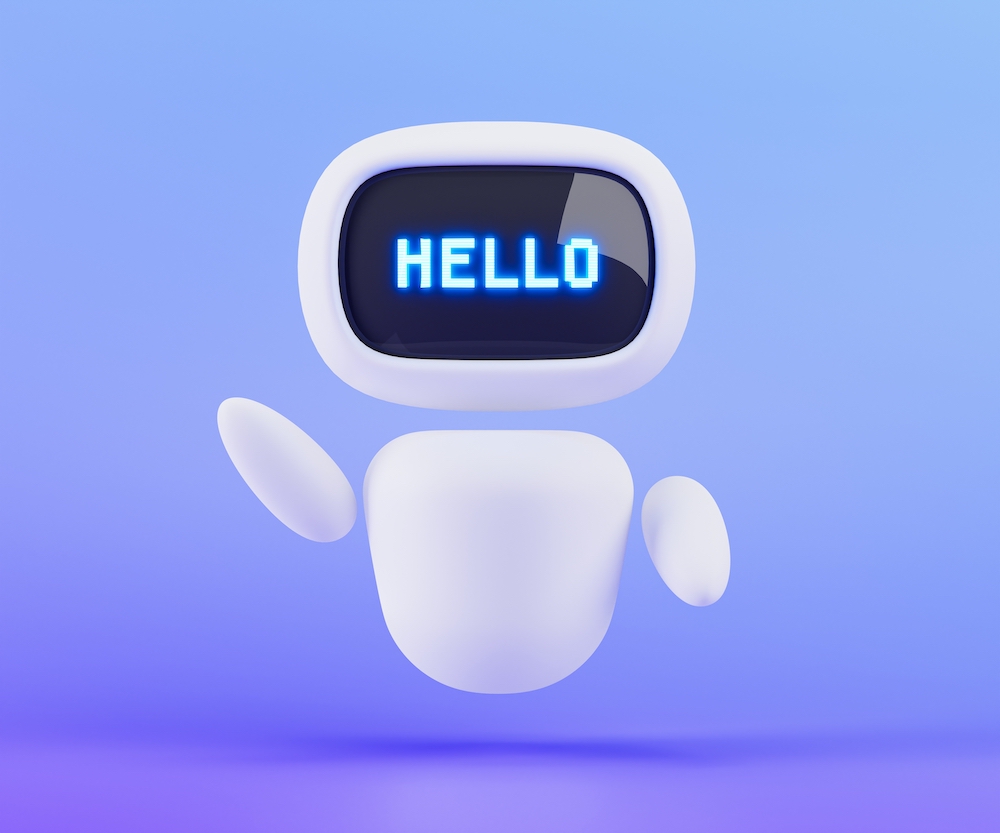
Posted November 07, 2023
By Ray Blanco
An AI Chatbot Walks Into A Bar…
There have been a number of complaints and concerns about generative AI.
It’s going to take our jobs…
Deepfakes will make all media unbelievable…
It will become sentient and rise up against humans…
Some concerns are reasonable, some much less so. You’ll find people arguing the full spectrum of stances on just about anything related to this new technology.
Except for one particular complaint that just about everyone can agree on…
AI isn’t that funny.
At least, not on purpose. Sometimes it interprets user prompts in either totally unexpected ways, or surprisingly accurately. Both of which can get its share of laughs.
But when you ask it to form an original joke for the sole purpose of being funny, the results are usually pretty rough.
Take this for example…

Maybe I just don’t get it.
Or take this Garfield strip that was made using AI-generated dialogue and images…

AI seems to understand the patterns of a joke, but when trying to create its own original humor, it’s very clear that they’re only advanced human imitators.
Knock, Knock
You’ll be happy to hear that the world’s first deliberately funny AI is finally at our door.
Supposedly…
The person taking on the Gordian Knot of unfunny AI’s is none other than Elon Musk. His AI startup, xAI, just rolled out an AI chatbot called Grok.
According to Grok’s release announcement…
Grok is designed to answer questions with a bit of wit and has a rebellious streak, so please don’t use it if you hate humor!
A unique and fundamental advantage of Grok is that it has real-time knowledge of the world via the 𝕏 platform. It will also answer spicy questions that are rejected by most other AI systems.
Grok is supposedly modeled after the Douglas Adams science-fiction novel The Hitchhiker’s Guide to the Galaxy. In what is possibly its debut joke, the name Grok comes from the unrelated Robert Heinlein science-fiction novel Strangers In A Strange Land.
This new ChatGPT competitor, which is currently only in early access, is described by the xAI team as “a very early beta product”, only having been trained for two months. The team says they expect it to improve rapidly now that it is released to the public.
Whether or not Grok reaches the totally subjective bar of being funny, or can even stack up on a technical level to other AI chatbots, it does appear to address a far more important issue facing AI in its early days…
Human interference, or as some may call it: censorship.
At the center of Musk’s move to buy Twitter for $44 billion was his criticism that the platform was infringing on free speech. A self-described “free speech absolutist”, the billionaire has spoken at length against censorship of contrarian or controversial speech.
Grok would appear to be an extension of Musk’s free speech crusade. While other chatbots like ChatGPT and Bing have been trained via thousands of man-hours to avoid insulting or harmful responses, often refusing to answer questions that might result in negative descriptions of real people or groups - Grok seemingly will have more room to run.
The issue of what should or shouldn’t be said on the internet and whether chatbots are included under whatever that may be is an issue that has been, and will continue to be argued at length.
But separate from however someone may feel about allowing potentially insulting or harmful responses, the human training and limitations of AI has still been a point of contention.
In a Technology Profits Daily article from earlier this year I mentioned how OpenAI’s selective censorship of ChatGPT’s responses ended up making the chatbot worse at math than when it first debuted.
An almost paradoxical issue at the heart of developing AI is this…
The more freedom you give AI, the more dangerous it is. The less freedom you give AI, the less useful it is.
It’s impossible for us to imagine the potential benefits of an artificial general intelligence (AGI), since once an AI has achieved that level of intelligence, it won’t be built on our training anymore. It will be able to teach itself, create better technology, then use that technology to further improve its learning.
This is what is referred to as an “intelligence explosion”, which would quickly lead to the mythological singularity.
It’s scary to imagine creating something that would replace us as the world’s smartest species, but it’s also incredible to think about the positive impacts of a fully realized AI that isn’t constantly contained by human overseers.
It’s unlikely that a “witty” AI will be the first step towards the singularity, but Elon’s latest experiment will certainly teach us a lot about the future of AI development.
With that we’d like to hear your thoughts. How do you feel about limiting/censoring chatbot responses? Do you think Grok will be able to compete with the established chatbots? Share your thoughts on this, or anything at feedback@technologyprofits.com.

